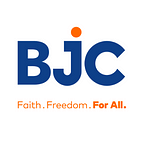Bring all of who you are, spiciness and all
By Kristan Pitts
“There is no such thing as a single-issue struggle because we do not live single-issue lives.”
-Audre Lorde
“It is our duty to fight for our freedom.”
― Assata Shakur, Assata: An Autobiography
“It is in collectivities that we find reservoirs of hope and optimism.”
― Angela Y. Davis, Freedom Is a Constant Struggle
A word I frequently use in my personal lexicon is “spicy.” Colloquially, the term “spicy” is used to mean “good, bad, or interesting.” Audre Lorde, Assata Shakur, and Angela Davis’ lives and legacies may be deemed “spicy” by some. Their spiciness has and continues to inspire my commitment to justice.
Unlike my usage of the term “spicy” to positively describe Lorde, Shakur, and Davis, I most often use it to describe something that falls along the spectrum of bad to interesting. The term “Baptist” has many different connotations. Having recently been approved for ordination, the “spiciness” that comes with being connected to the Baptist tradition is not lost on me. Even with its “spiciness,” it is in Baptist communities that I first made the connection between my Christian faith and the biblical call of justice-making. Since making that connection, over the past several years, I have been wrestling with the following questions:
- What will it take to build and sustain a just and equitable society?
- How is my vocation in alignment with building and sustaining a just and equitable society?
- What tools and actions are needed to build and sustain a just and equitable society?
I have been journeying with myself and the communities with which I am connected to answer these questions. Although I am still exploring, I have loosely arrived at the following ideas:
- In order to build and sustain a just and equitable society, I believe it will take policy change and strategic implementation.
- As I reflect on the work I feel most drawn to, my passions, and my skills, I see community healing, education, advocacy, and action as tools to help communities and our country achieve the goal of becoming more just and equitable for all.
I have had several opportunities to engage in a variety of justice-centered work around addressing racism, LGBTQIA+ rights, and environmental justice. One thing I noticed early in my work was how siloed each movement seems to be from the others. I believe all justice work should be intersectional because, as best put by American writer, feminist, womanist, and civil rights activist Audre Lorde, “There is no such thing as a single-issue struggle because we do not live single-issue lives.” As I was preparing to go into my final year of my Master of Divinity program, I thought about how my life and work could be more intersectional which motivated me to apply for the BJC Fellows Program. In participating, I hoped to better understand how religious liberty intersects with other justice issues. In engaging BJC programs and throughout the 5-day seminar, the intersections became more evident.
One of my favorite sessions during the BJC Fellows Seminar was with Dr. Sabrina Dent. At the start of her presentation, she asked participants to share what identity markers were most salient for them. The identity categories that are most salient for me are my gender identity, sexual orientation, socio-economic status, race, and region of origin. As I shared and listened to others share, my belief that “ we bring all of who we are to the spaces and places that we frequent” was reaffirmed. Also, in seeing how different each participant was, I found hope that despite our differences, we were committed to religious liberty for ALL. In our individual and collective work, as Angela Davis suggests, I “see a reservoir of hope and optimism in our collectivities.”
As a Black, Queer woman from the South, who has spent most of my life as a low wealth person, I am committed to fighting for a just and equitable world. That fight also includes religious liberty for ALL. I invite you to bring all of who you are — “spiciness” and all — because religious liberty intersects with every issue and impacts us all.
Kristan Pitts is a member of the 2021 class of BJC Fellows.
